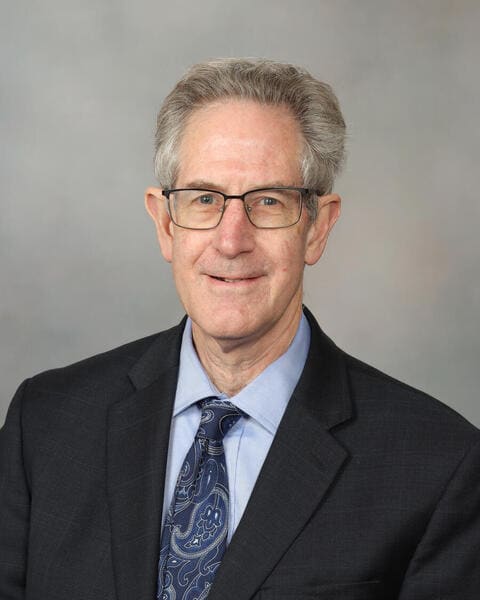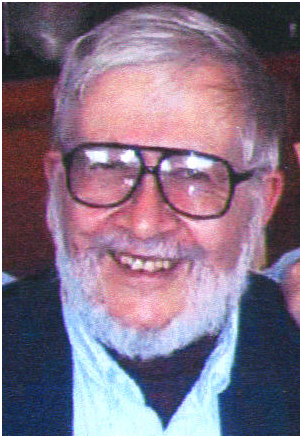ITEST Webinar
Bridging the Chasm:
Quantum Mechanics and Christian Spirituality
This webinar was presented on December 16, 2023.
Our presenters
Terrence D. Lagerlund, MD, PhD
Bridging the Chasm: How Quantum Mechanics brings together the Physical and Spiritual Worlds

Dr. Terrence Lagerlund has been a neurologist in the Division of Epilepsy at Mayo Clinic for 35 years, treating patients with epilepsy and interpreting their electroencephalograms. He also lectures to residents and fellows on electroencephalography including basic principles of electricity and neurophysiology. He has published papers and authored book chapters on electroencephalography and epilepsy, particularly regarding quantitative analysis of electroencephalograms. Prior to becoming a neurologist, he obtained a Ph.D. in physics and worked as a postdoctoral research associate at the MIT Laboratory for Nuclear Science (doing research at Brookhaven National Laboratory and CERN) and as a term physicist at Fermilab.
Abstract
Robert Kurland, PhD
Touring the Wonderland of Quantum Mechanics

Dr. Robert Kurland (a convert to Catholicism in 1995) is a retired physicist who has applied magnetic resonance to problems of biological interest in his research (web search: “Kurland-McGarvey Equation”). He began to learn about quantum mechanics at Caltech (BS, “with honor,” 1951) and Harvard (MS,1953; Ph.D.,1956) from courses taught by Richard Feynman and Julian Schwinger. In teaching quantum mechanics to students at Carnegie-Mellon University and SUNY/AB he found that mathematical formalism of quantum mechanics was an obstacle to understanding. So, in his talk he will try to explain what quantum mechanics is about using a minimum of mathematics, as he did in his book Mysteries: Quantum and Theological.
Abstract
The talk will give a brief, qualitative, pictorial explanation of quantum mechanics, from a historical perspective. I’ll illustrate two mysteries of quantum mechanics—superposition of states (the Schrödinger Cat paradox) and entanglement—by use of simple examples. Also, I’ll discuss some of the many interpretations of quantum theory, focusing on how they might be related to Catholic teaching.
Webinar resources
Questions and Answers by Dr. Lagerlund following the webinar can be found here.
Barr, Stephen M. 2009. “More than Machines: Physics & Free Will.” Commonweal Magazine.
(A treatise concerning classical determinism and quantum mechanical randomness and how the latter may relate to free will).
Barr, Stephen M. 2018. The Role of the Observer in Quantum Mechanics – The Society of Catholic Scientists
(A lecture concerning quantum mechanics and the relationship to conscious observers).
Campbell, Phillip. 2022. The Dominican-Jesuit Controversy on Grace (catholicexchange.com)
(An article about predestination and the theological challenge to free will, and the argument between the Dominicans and Jesuits during the Counter-Reformation).
Leggett, Tony. 1999. “Quantum theory: weird and wonderful.” PhysicsWorld.com
(A somewhat technical review of some of the mysteries of quantum mechanics like entanglement and the measurement problem).
Penrose, Roger. 1994. Shadows of the Mind: A Search for the Missing Science of Consciousness. Oxford, New York: Oxford University Press.
(A book detailing the arguments for Penrose’s contention that there is something in the conscious activity of the brain that transcends computation–and will find no explanation in terms of present-day science. Also contains much about quantum mechanics and the role of the conscious observer in state vector collapse.)
Salza, John. 2010. The Mystery of Predestination: According to Scripture, the Church, & Thomas Aquinas. Charlotte, NC. Tan Books.
(A thorough explanation of the teachings of Thomas Aquinas and the Catholic Church on grace, free will, and predestination, in comparison with rival teachings of Molinism, Calvinism, and Arminianism.)
Schurger, Aaron. 2021. “What does neuroscience have to say about free will?”
(An article about challenges to free will posed by neuroscience experiments involving EEG recordings, and a possible resolution of the challenge).
Smith, Wolfgang. 2005. The Quantum Enigma: Finding the Hidden Key. 3rd Edition. San Rafael, CA: Angelico Press: Sophia Perennis.
(A book concerning the problems with the orthodox interpretation of quantum mechanics and the measurement problem, and Smith’s proposal that God is responsible for state vector collapse in a quantum system).
Wikipedia contributors. 2023. “Schrödinger’s cat.” Wikipedia, The Free Encyclopedia. .
(An article about the measurement problem of quantum mechanics and the “Schrödinger’s cat” thought experiment and various interpretations of quantum mechanics.)
Soul – Encyclopedia Volume – Catholic Encyclopedia – Catholic Online
(An article providing a detailed exposition of theological and philosophical beliefs about the soul from ancient times to the present; a good reference for the teachings of Thomas Aquinas on the soul).
What if she had said No? « Electric Prayer (wordpress.com)
(A reflection on just how much God values human free will).
